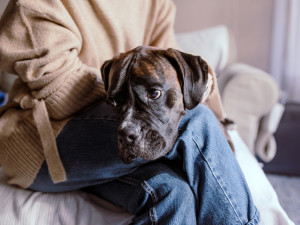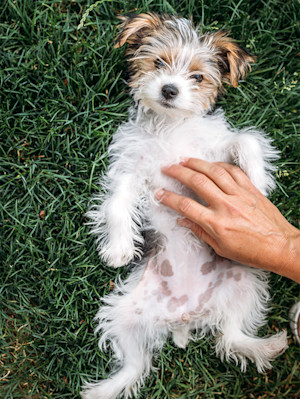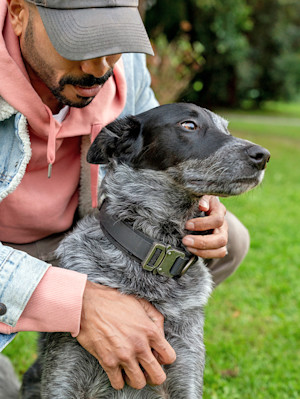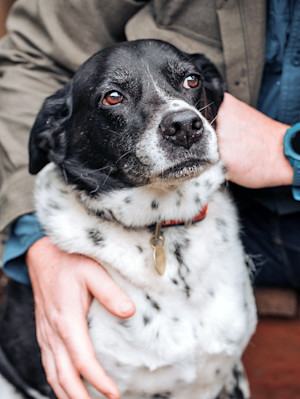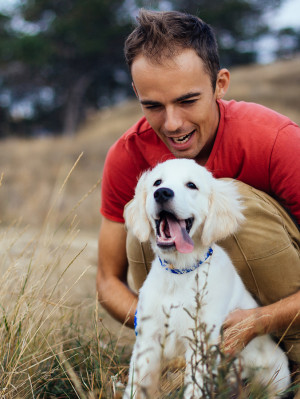Certain Kinds of Dogs Are More Likely to Get Cancer, New Study Finds
Genetics and environment both play a role.
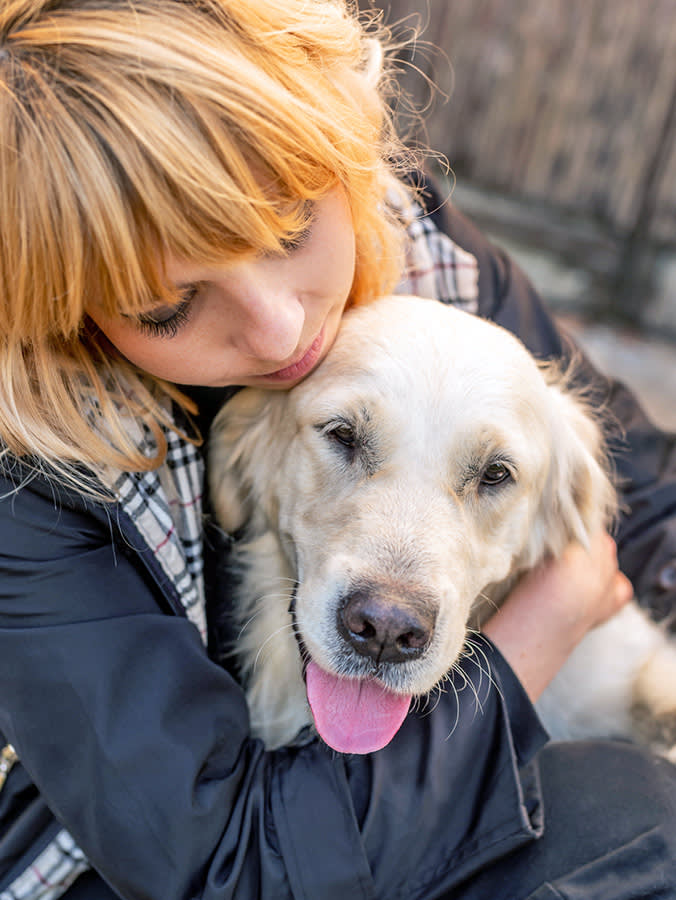
Share Article
No one likes to think about the Big C — but when it comes to caring for our dogs (especially in their golden years), there’s a high chance that we’ll have to face the realities of cancer. The Veterinary Cancer Society estimatesopens in new tab that one in four dogs will develop cancer in their lifetime, making it the leading cause of death in pups. But not all dogs are at equal risk; genetics play a significant role. A new studyopens in new tab found that gender, breeding, and age all contribute to the likelihood that a pet will develop a tumor.
Researchers examined the clinical cases of dogs visiting the Veterinary Teaching Hospital at the University of Leon in Spain between 2015 and 2024. They found that 107 dogs out of 17,307 dogs in the hospital were diagnosed with tumors, leading them to conclude that annually, about 618 out of every 100,000 dogs will develop cancer.
Which dogs are most likely to develop cancer?
The scientists analyzed the characteristics of the 107 dogs, considering age at diagnosis, breed, sex, neuter status, and weight. They discovered that certain groups experienced higher cancer rates: female dogs, purebred dogs, and aged dogs.
The number of female dogs with cancer nearly doubled the number of male dogs; sixty-five percent of the diagnosed dogs were female. This may be because the most commonly found cancer was in the mammary glands, which is a type less likely to affect male dogs. “Mammary gland tumors are the most common neoplasms in intact female dogs, accounting for over 40 percent of all tumors,” Beatriz Romero, the study’s lead author, wrote.
The great majority (74 percent) of dogs were purebred. Of the purebred dogs, the breeds most commonly diagnosed with tumors were Golden Retrievers (6.5 percent), Boxer breeds (6.5 percent), German Shepherds (5.6 percent), and Labrador Retrievers (5.6 percent). These findings aligns with previous research, which has found that there are “heritable risks associated with this disease due to inbreeding,” Romero wrote.
As in humans, age plays a role. Dogs with cancer were most likely to be in the age range of 9.5, plus or minus 2.7 years. According to Banfield Animal Hospital,opens in new tab “Senior pets have a higher risk of cancer because of accumulated environmental exposure to toxins, age-related immune decline, and genetic predispositions.”
How to protect your pet
Researchers found that most of the tumors were malignant, and the most common types of cancer were carcinoma and lymphoma. After diagnosis, about half of the pets went through surgery. Thirty-seven percent received chemotherapy. Tragically, euthanasia was eventually administered to about 27 percent of dogs.
Early screening is key to protecting your dog; the sooner cancer is detected, the better their outcomes are, so be sure to keep your pet up-to-date on their annual vet visits. Contact your veterinarian if your dog is showing signs of pain or poor health, such as weight loss, limping, swollen lymph nodes, or abnormal breathing — or if you feel any lumps.
If your dog is diagnosed with cancer, a variety of treatment options are available, from surgery to chemotherapy to immunotherapy to cutting-edge new drug trials. Consider investing early in pet insurance, which can help with medical costs down the line. Your veterinarian can help you decide the best option for your pup, so they can enjoy as many happy years as possible cozied up by your side.

Sio Hornbuckle
Sio Hornbuckle is the Assistant Editor at Kinship, where they frequently write for the site. As a writer, they specialize in pet news, animal science, and pop culture. They live in New York City with their cat, Toni Collette.
Related articles
![Sad boxer rests on owners lap, dog doesn't want to be touched]()
How to Tell if Your Dog Is in Pain
And what to do to help them.
![Person petting cute dog outside in the grass.]()
Why Does My Dog Have Black Spots on Their Skin?
Is that normal?
![Man petting his dog's neck outdoors.]()
Guide to Swollen Lymph Nodes in Dogs
Here’s how to figure out if they’re swollen, and what to do if they are enlarged.
![Senior dog being hugged by a man outside.]()
Do Dogs Actually Get Grumpier as They Age?
You love your curmudgeon. But don’t assume their mood is just caused by old age...
![Young Man With Retriever Puppy]()
When Should You Spay or Neuter Your Dog?
The research is confusing—here are some guidelines.
